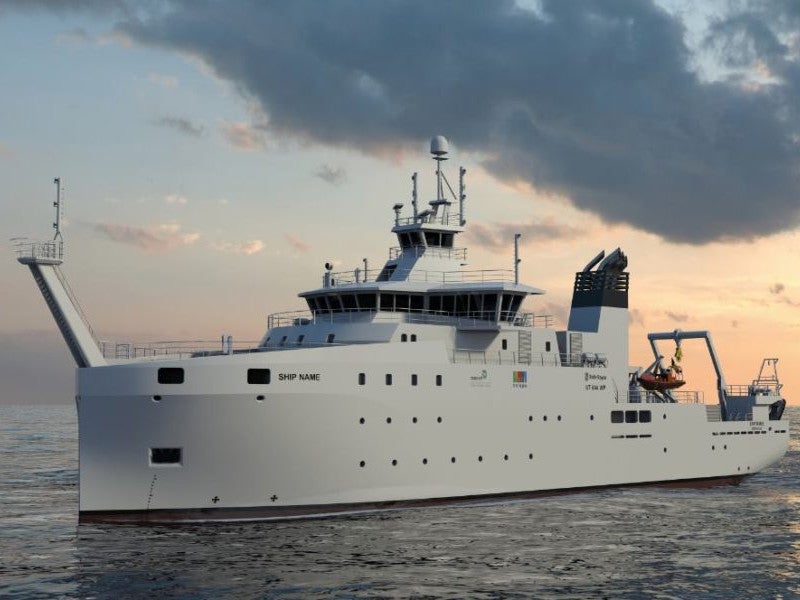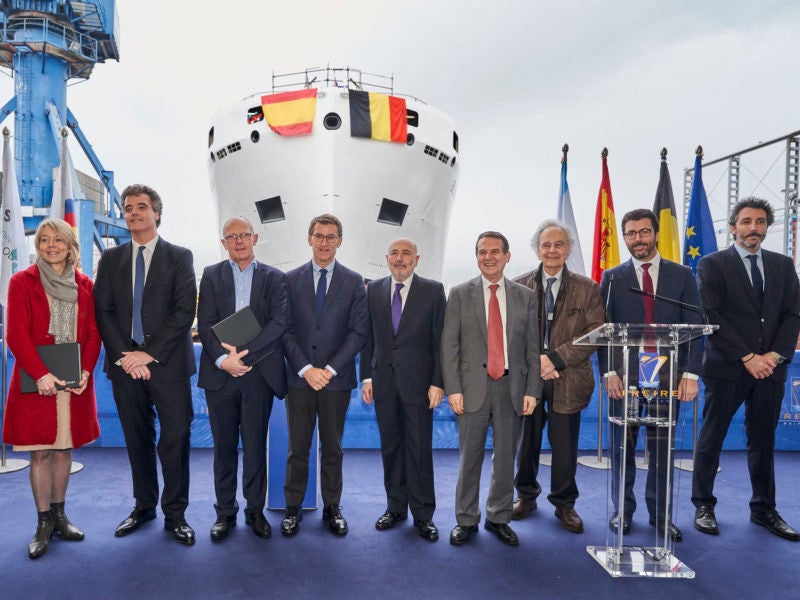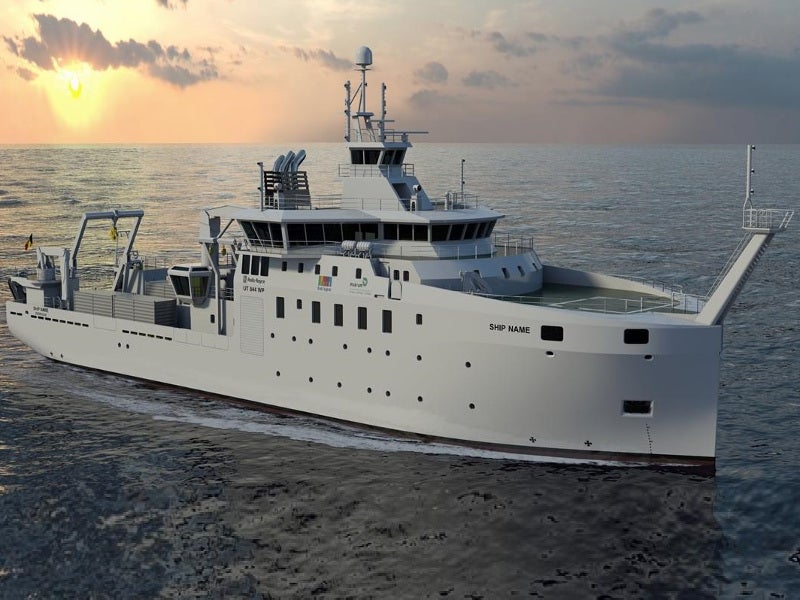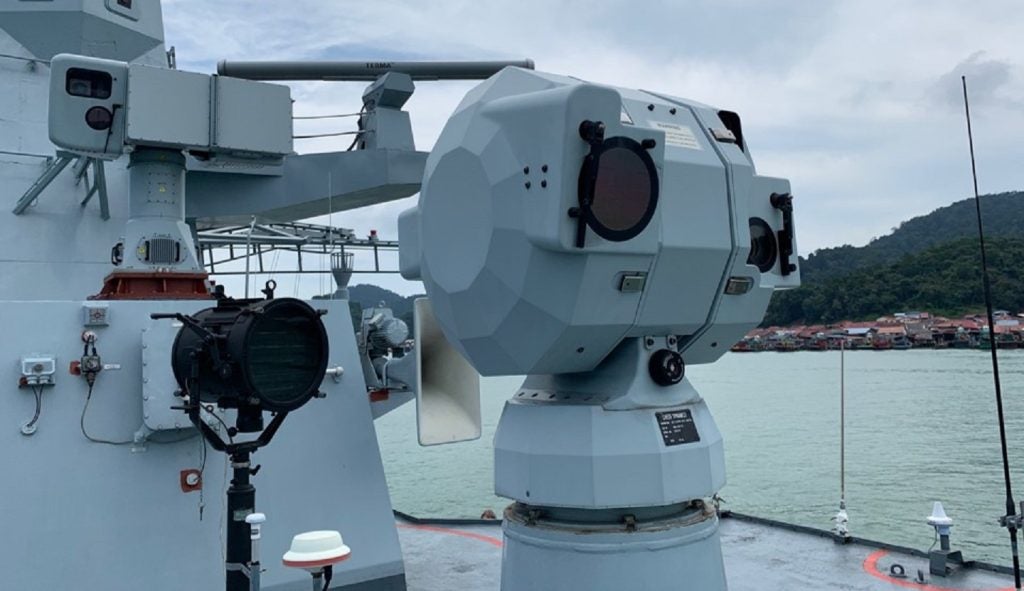Belgica is a new state-of-art oceanographic research vessel being built by Freire Shipyard for the Belgium Navy.
The multidisciplinary vessel will mainly offer support to the Belgian marine research community for the next 30 years.
The vessel is being constructed in partnership with the Royal Belgian Institute of Natural Sciences (RBINS), the Belgian Ministry of Defence and the Belgian Science Policy Office (BELSPO).
Built with an estimated cost of €54m ($59m), the new vessel will replace the existing 36-year-old Belgian oceanographic research vessel A962 Belgica.
The keel-laying ceremony was held in March 2019 and the vessel was launched at the Freire Shipyard in Vigo, Spain, in February 2020. It is expected to be delivered in November 2020.
Belgica oceanographic research vessel design and features
Belgica will be based on the Rolls-Royce UT 844 WP design. The research ship will receive Ice Reinforcement Class ICE-1C notation. It will have a length of 71.4m, a width of 16.8m and a draft of 4.8m. It will accommodate 40 personnel, including crew, scientists and marine technicians, in 14 single and 13 double cabins.
The vessel will support a range of research disciplines, including fisheries, geology, chemistry, biology and oceanography. It will be deployed in the North Sea, Atlantic Ocean, Mediterranean Sea and Arctic region.
The Belgica research vessel will be equipped with two integrated drop keels and Hoppe roll stabilisation system. The vessel will have the capacity to conduct research at water depths up to 5,000m.
The laboratory space on board the vessel will be more than 400m² and will feature five dry labs, three wet labs, one scientific coordination room and a data acquisition room.
The research ship will also have an autonomous underway measurement system (AUMS) lab, aerosol lab, diver store, seismic room, scientific lab, operational centre, conductivity temperature and pressure (CTD) hangar, hangar, crow’s nest, cold and freeze rooms, and large aft and starboard decks.
Cranes and winches will handle heavy-lift operations on board the vessel. A 7m-long workboat will also be available for operational support.
The ship will also be installed with automation and control systems such as propulsion control system, unified bridge and dynamic positioning class 2 (DP-2).
Belgica acoustic and diving equipment
The oceanographic research vessel will be equipped with a full acoustic underwater instrumentation suite that will map and analyse full water column, seafloor and subsurface.
It will also be installed with EM2040 shallow and EM304 deep-water bathymetric multi-beam echosounders, as well as ME70 scientific multi-beam and EK80 split-beam wideband echosounders.
The Belgica research vessel will also feature SU90 omnidirectional fish sonar, PX and FX80 catch monitoring systems and HiPAP 502 underwater position-reference system.
It will have acoustic doppler current profilers, including 75kHz Ocean Surveyor and 600kHz Workhorse. A Topas PS18 parametric sub-bottom profiler will also be installed.
The vessel will be able to accommodate autonomous underwater vehicles (AUV), remote-controlled vehicles (ROV), tripods, buoys, 3D seismic systems, scientific sediment coring and rock drill devices to carry out underwater marine research. It will also have space for seven ISO 20ft containers.
Belgica vessel propulsion
The ship will be installed with a diesel-electric propulsion system with low noise levels and will have limited influence on the environment.
The propulsion system will allow the vessel to sail at a cruise speed of 11k and a maximum speed of 13k.
The ship will be capable of operating at sea for 30 days and conducting research for up to 300 days each year.
Contractors involved
Rolls-Royce received a contract from Freire Shipyard to provide ship design and equipment for the new vessel in November 2018.
The contract also includes the supply of side thrusters, Promas integrated propulsion and manoeuvring system, electric system and steering gear.
Anglo Belgian Corporation (ABC) was contracted to supply generator sets for the ship.
Kongsberg Maritime received a contract to provide an integrated suite of subsea systems for the Belgica research vessel in March 2019.










